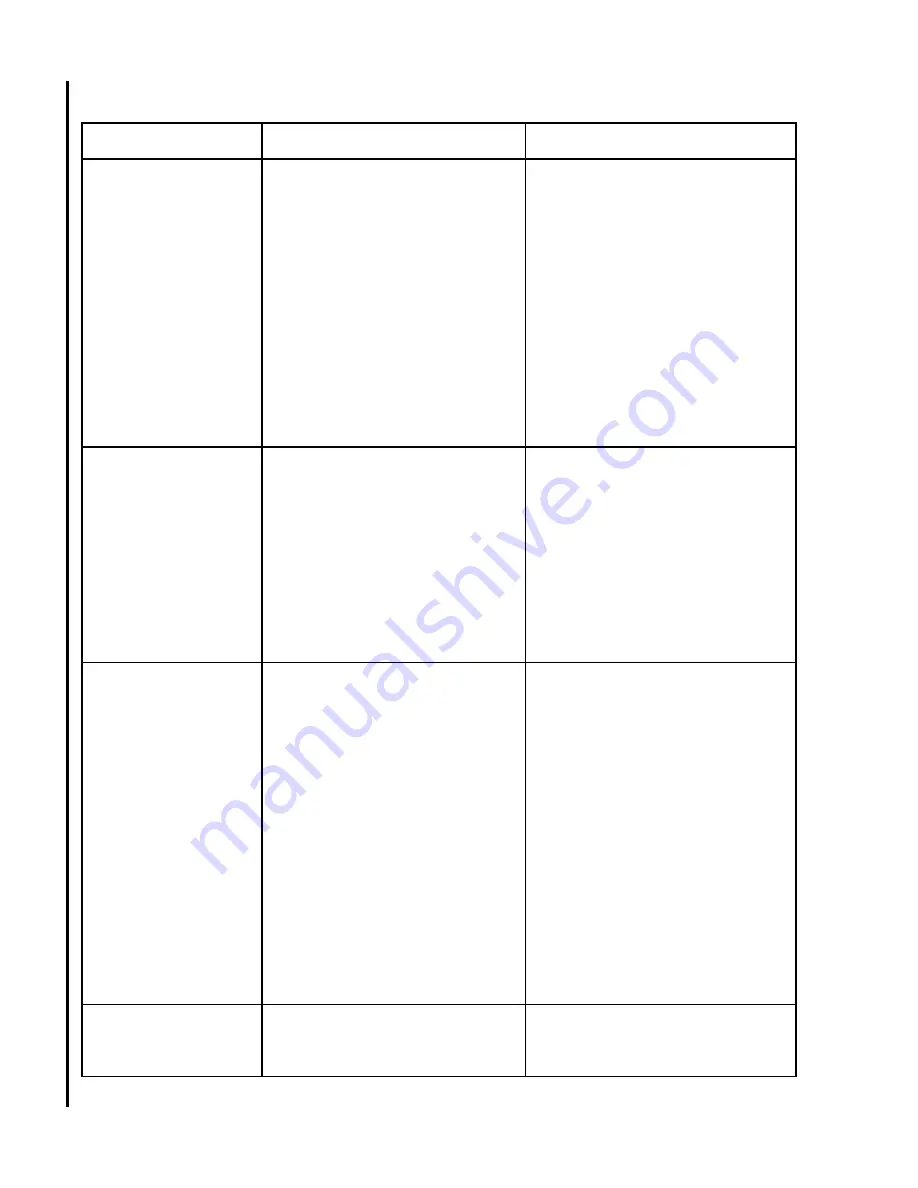
20
Troubleshooting
Fault
Excessive blade
breakage
Premature blade
dulling
Bad cuts
(out-of-square)
Bad cuts (rough)
Probable cause
1. Material loose in vise.
2. Incorrect speed or feed.
3. Teeth too coarse for material.
4. Incorrect blade tension.
5. Saw blade is in contact with
workpiece before the saw is
started.
6. Blade rubs on the wheel flange.
7. Misaligned guides.
8. Cracking at weld.
1. Blade teeth too coarse.
2. Blade speed too high.
3. Inadequate feed pressure.
4. Hard spots in workpiece or scale
on/in workpiece.
5. Work hardening of material
(especially stainless steel).
6. Insufficient blade tension.
7. Operating saw without pressure on
workpiece.
1. Workpiece not square with blade.
2. Feed pressure too fast.
3. Guide bearings not adjusted
properly.
4. Inadequate blade tension.
5. Span between the two blade
guides too wide.
6. Dull blade.
7. Incorrect blade speed.
8. Blade guide assembly is loose.
9. Blade guide bearing assembly
loose.
10. Blade track too far away from
wheel flanges.
11. Guide bearing worn.
1. Blade speed too high for feed
pressure.
2. Blade is too coarse.
Suggested remedy
1. Clamp work securely.
2. Check Machinist’s Handbook for
speed/feed appropriate for the
material being cut.
3. Check Machinist’s Handbook for
recommended blade type.
4. Adjust blade tension to the point
where the blade just does not slip
on the wheel.
5. Start the motor before placing the
saw on the workpiece.
6. Adjust blade tracking.
7. Adjust guides.
8. Longer annealing cycle.
1. Use a finer tooth blade.
2. Try a lower blade speed.
3. Decrease spring tension.
4. Increase feed pressure (hard
spots). Reduce speed, increase
feed pressure (scale).
5. Increase feed pressure by reduc-
ing spring tension.
6. Increase tension to proper level.
7. Do not run blade at idle in/on
material.
1. Adjust vise so it is square with the
blade. (Always clamp work tightly
in vise.)
2. Decrease pressure.
3. Adjust guide bearing clearance to
0.001 inch (0.002 inch maximum).
4. Gradually increase blade tension.
5. Move blade guide bar closer to
work.
6. Replace blade.
7. Check blade speed
(see Figure 3).
8. Tighten blade guide assembly.
9. Tighten blade guide bearing
assembly.
10. Adjust blade tracking.
11. Replace worn bearing.
1. Reduce blade speed and feed
pressure.
2. Replace with finer blade.
NOTE: Troubleshooting continued on next page









































